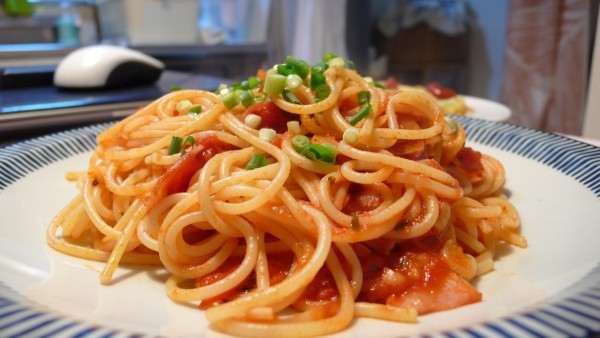Tomato-based sauces are the most popular pasta sauces out there. And when it comes to spaghetti, you cannot beat spaghetti sauce. But what should you do if you won’t use the whole bottle of spaghetti sauce in one sitting? How should you store it and for how long? Can you maybe freeze it so you can use it later on? If at least one of those questions popped in your head and you’re unsure what the answer is, read on. This article covers exactly those questions.

How to store spaghetti sauce?
Unopened store-bought spaghetti sauce should be stored in a cool and dark place, preferably in the pantry. If that’s not an option, storing it somewhere else in the kitchen is okay too, as long as it doesn’t sit in sunlight. Once you open the bottle, keep it in the fridge.
If you’ve made spaghetti sauce from scratch, unless you’ve canned it, it should always sit in the fridge.
If you need to store opened or homemade spaghetti sauce for a longer period of time, freezing is an option. Just transfer the sauce into an airtight container or a freezer bag and chuck it into the freezer. If it’s going to sit there for a few months, consider labeling the package with the date of freezing for reference later.
How long does spaghetti sauce last?
Store-bought spaghetti sauce usually has a “best by” date. As you likely know, “best by” date isn’t an expiration date but an indicator of how long the product should be at peak quality. So as long so the bottle remains unopened (an undamaged), spaghetti sauce will last for at least 3 to 5 months after the date printed on the package. That’s a rather safe estimate and in most cases it should remain just fine for at least a few months more. That being said, pasta sauce, like almost every other food out there, loses its quality over time. So if it’s already a few months after the printed date, and the sauce didn’t go bad, make sure it tastes good enough to be used. In some cases, you might want to throw it out for quality reasons.
When it comes to opened store-bought spaghetti sauce, it should last about a week to maybe 10 days in the fridge. The longer it sits there after opening, the worst its quality. So after two weeks of storing it in the refrigerator it might still safe to eat, but taste rater bad. If you plan to store an opened pasta sauce for longer than a week, consider freezing it. This way it’ll be still quite good when you need it again.
Homemade spaghetti sauce lasts about 3-4 days in the fridge. As usual, the best option is to prepare only as much sauce as you need for the next dish so you don’t have any leftovers. If you don’t plan to use the leftovers within those 3 to 4 days, freeze them.

How to tell if spaghetti sauce is bad?
Telling if spaghetti sauce is bad is quite simple. First, check if there are any signs of mold or anything else that’s not supposed to be in the jar. If there are, throw out the whole thing. Mold is much more likely to form after the bottle of jar is opened, but is can happen to an unopened bottle too. That usually happens when the bottle hasn’t been properly sealed in the production process or the package got damaged and air got into the bottle. Next, smell the sauce. If it smells off or funny, discard it.
Another thing to look for is color and texture change. Darker and thicker sauce doesn’t necessarily mean it’s bad, but you might want to get rid of it for quality reasons. If everything seems to be okay, taste a bit. If it looks, smells and tastes good, it most likely perfectly fine to eat. Just make sure you cook it before eating, just to be on the safe side.
Is spaghetti sauce safe to use after “expiration” date?
As mentioned earlier, this pasta sauce usually comes with a “best by” date, which is only an indicator of how long the product will be of best quality. As long as the jar or bottle is undamaged and unopened, it should be perfectly safe to eat even for a few months past the printed date. For more details refer to this section.